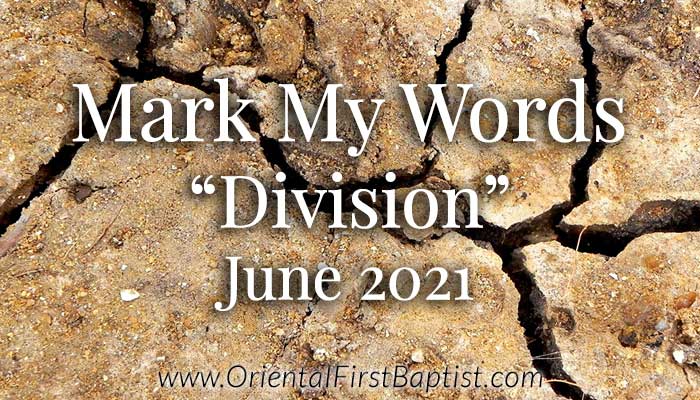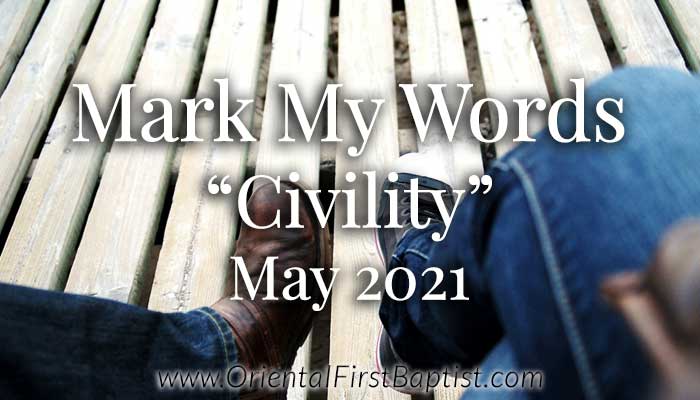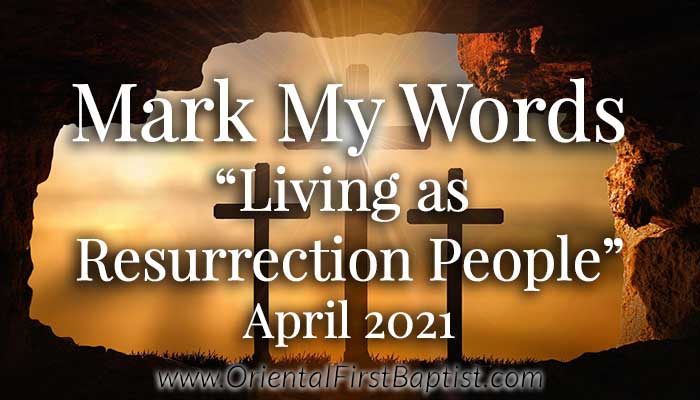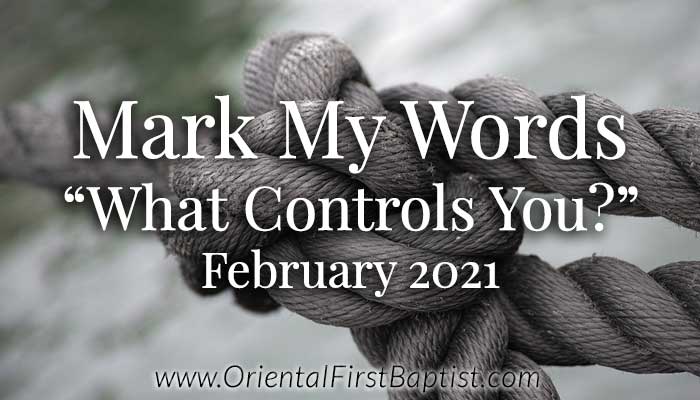When we were young and in elementary school we learned how to add, subtract, multiply, and DIVIDE. Division comes in handy as we live out our daily lives. When you are in the kitchen cooking, the recipe you have may serve far too many people. You wisely divide the ingredients in half in order to yield a more suitable serving size for the number of people you have in your household. When you are out on your boat fishing, you divide out your bait, putting the right amount on the hook in order to attract the particular fish you are trying to catch. In these uses, division is a very positive and helpful thing to humans. The type of division I will examine today is anything but positive. It is positively harmful to people and to the mission of the church. We, as Christians, are to avoid this type of division at all costs for in so doing we protect the fellowship of the church and are able to stay focused on our mission, the Great Commission.
Some of you may have taken civics classes when you were going through school. Civics is the study of the rights and obligations of citizens in society. For example, we would consider voting for our elected leaders to be both a right and an obligation. Today I would like to discuss civility. This word carries a somewhat different but related meaning. Civility can be defined as formal politeness and courtesy in behavior and speech, without qualification. When I say, without qualification, it means that we are to treat others with politeness and courtesy in behavior and speech both when we agree and when we disagree with them. The proper way to exercise our rights and obligations as citizens of the United States is by pursuing positive, constructive, and yes, polite and courteous conversation with other people. Christians should lead the way in both civility and civics.
As we move on beyond the Easter holiday, the question for us to consider is what impact should the death and resurrection of Jesus Christ have on our lives? We celebrate the death of Christ on the cross and His resurrection from the dead as the glorious center point of human history, the hinge if you will, about which all human history revolves. If this event was that important, that central to human destiny, then it should make a positive impact on our lives both now and for all of eternity.
Following are some of the positive impacts that the death and resurrection of Jesus Christ should have on our lives.
Whenever we set out on a trip and if we are traveling on the interstate we will see mileposts. These mileposts or markers show us where we are at along the journey. Depending on which way we are traveling, the mileposts will either count up or down. As we watch these mileposts with expectancy they provide hope that we are getting closer to our intended destination. Excitement builds, especially if the destination includes seeing family and friends that we have not seen in a while.
We are now on a journey toward Easter Sunday. On this journey we will see mileposts of hope along the way.
When I ask the question, “What controls you?”, I’m sure that you could come up with a variety of answers. For some folks, the answer could be that the pursuit of money and material possessions controls them. For others, perhaps, it is an overwhelming desire to be accepted by other people that controls them. We know also that there are those who are controlled by an unhealthy addiction to alcohol and drugs, which we know can ruin their lives.




